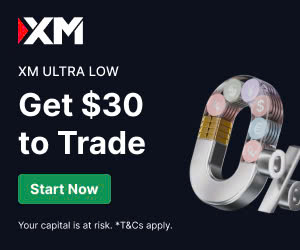
7 minute read
Is XM Regulated in Nigeria? Everything You Need to Know
If you are a Nigerian trader wondering whether XM is regulated in Nigeria, the straightforward answer is no — XM is not directly regulated by the Central Bank of Nigeria (CBN) or the Securities and Exchange Commission of Nigeria (SEC Nigeria). However, this does not mean the broker operates without oversight. XM is a globally recognized forex and CFD broker regulated by several top-tier financial authorities in other jurisdictions, and Nigerian traders can still open and maintain accounts with XM legally.

💥 Trade with XM now: Open An Account or Visit Brokers 🏆
In this article, we will break down exactly what this means for you as a Nigerian trader, how XM operates in Nigeria, what regulations protect you, and whether it is safe to trade with XM from within the country.
XM’s Regulatory Status
XM is a trading name of Trading Point Group, a company that operates multiple entities licensed in different countries. While Nigeria does not currently license or regulate XM directly, the broker holds licenses from several reputable regulators, including:
· Cyprus Securities and Exchange Commission (CySEC) – License No. 120/10
· Australian Securities and Investments Commission (ASIC) – AFSL No. 443670
· International Financial Services Commission of Belize (IFSC) – License No. 000261/158
These regulators are considered reputable, with ASIC and CySEC being particularly strict in ensuring brokers comply with client fund segregation, fair trading practices, and transparent operations.
Because XM is not regulated in Nigeria, Nigerian traders fall under offshore regulation, usually through XM’s Belize entity. This means you will not have local legal recourse via Nigerian authorities if issues arise, but you will still benefit from XM’s adherence to its international regulators’ rules.
Can Nigerians Legally Trade with XM?
Yes. There is no law in Nigeria that prohibits citizens from trading forex with international brokers like XM. Nigerian traders regularly use foreign-licensed brokers to access the global forex and CFD markets because the local regulatory framework for retail forex trading is not yet fully developed.
The Central Bank of Nigeria (CBN) focuses mainly on banking regulations and currency controls, not directly on retail forex brokers. The Securities and Exchange Commission (SEC Nigeria) has regulations for capital market intermediaries, but most foreign forex brokers operate outside this structure.
In short: You are allowed to open and maintain a trading account with XM as a Nigerian resident.
Safety of Trading with XM in Nigeria
While XM is not locally regulated, it has built a strong global reputation since its founding in 2009. Here are some key safety measures XM applies:
1. Segregated Client Funds – Your deposits are kept separate from XM’s operational funds.
2. Negative Balance Protection – You cannot lose more money than you deposit, even in highly volatile markets.
3. Regulatory Audits – XM is regularly audited by its licensing authorities to ensure compliance.
4. Transparent Pricing – XM offers no hidden fees, and its spreads and commissions are clearly displayed.
That said, the absence of local regulation means that if a dispute arises, Nigerian traders would need to seek resolution through the broker’s international regulator or internal complaints process rather than through Nigerian courts.

💥 Trade with XM now: Open An Account or Visit Brokers 🏆
How XM Works for Nigerian Traders
Nigerian traders can open accounts with XM’s international platform, deposit funds in USD or other currencies, and trade forex, commodities, indices, metals, energies, and stocks via MT4 or MT5.
Here’s what trading with XM from Nigeria typically looks like:
· Account Opening – 100% online, with verification via a government-issued ID and proof of address.
· Base Currencies – XM does not offer NGN trading accounts, so you will need to use USD, EUR, or other foreign currencies.
· Deposits and Withdrawals – Nigerian traders often use bank transfers, credit/debit cards, or e-wallets like Skrill and Neteller. Local bank transfer options may be available via payment processors.
· Leverage – Depending on the entity you register with, leverage can go up to 1:1000 for certain accounts.
· Trading Platforms – Both MetaTrader 4 (MT4) and MetaTrader 5 (MT5) are supported.
Advantages of Trading with XM in Nigeria
1. Global Regulation – Although not licensed in Nigeria, XM is regulated by strong international authorities.
2. Tight Spreads – XM is known for competitive spreads, starting from 0.0 pips on certain account types.
3. Variety of Instruments – Trade forex, commodities, stocks, and more from a single account.
4. No Hidden Fees – Transparent pricing makes it easy to calculate costs.
5. Educational Resources – XM offers webinars, tutorials, and market research, which is useful for Nigerian beginners.
6. Bonuses and Promotions – XM often runs deposit bonuses and promotional offers that Nigerian traders can access.
Disadvantages for Nigerian Traders
1. No Local Regulation – No direct oversight from Nigerian financial authorities.
2. Currency Conversion Costs – Because NGN accounts are not supported, conversion fees may apply.
3. Limited Local Payment Solutions – While some local transfer options exist, they are not as fast as direct Nigerian bank integration.
4. Offshore Dispute Resolution – Any complaint must go through foreign regulators or XM’s internal channels.
Regulatory Risks to Consider
Trading with an offshore-regulated broker means:
· Weaker Legal Protection – Your rights are enforced by foreign regulators, which may have different dispute resolution processes.
· Currency Volatility – Funding your account in USD or EUR means exchange rate changes can affect your costs and withdrawals.
· Withdrawal Processing – While XM is known for quick payouts, delays can occur if there are currency control measures in Nigeria.
However, XM’s track record and compliance with top-tier regulations do offer a higher level of safety compared to unlicensed brokers.
Tips for Nigerian Traders Using XM
If you choose to trade with XM from Nigeria, here are practical steps to protect yourself:
1. Choose the Right XM Entity – Register with the entity that offers the leverage, bonuses, and conditions that suit you.
2. Use E-Wallets for Funding – Skrill, Neteller, and similar options can be faster and more reliable than direct bank transfers for international deposits and withdrawals.
3. Keep Records – Maintain screenshots and confirmations of deposits, withdrawals, and trading activity.
4. Understand Leverage Risks – High leverage can amplify both profits and losses; use it responsibly.
5. Stay Updated – Keep track of any changes in Nigerian forex regulations that might affect your ability to trade internationally.
Final Verdict: Is XM Regulated in Nigeria?
No, XM is not regulated in Nigeria by the CBN or SEC Nigeria. However, it operates legally in the country via its offshore licenses from reputable regulators like CySEC, ASIC, and IFSC. Nigerian traders can open accounts, deposit funds, and trade with XM without breaking local laws, but they should understand the implications of using a broker without domestic regulation.
For most Nigerian traders, XM remains a safe, reliable, and globally respected choice — provided you take the necessary precautions and understand the risks of offshore trading.
Bottom line: You can trade with XM from Nigeria, but your protection comes from international regulators, not Nigerian authorities. Always practice good risk management and use secure funding methods to make your trading journey as smooth as possible.
💥 Note: To enjoy the benefits of the partner code, such as trading fee rebates, you need to register with XM through this link: Open An Account or Visit Brokers 🏆
Read more:




